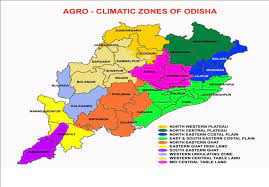Bhubaneswar: In a bid to strengthen its disaster management framework, the State Government has initiated steps for vulnerability analysis and risk assessment in 10 agro-climatic zones of Odisha.
The climate change cell of Forest, Environment & Climate Change Department has been entrusted with the assignment.
The assignment will focus on development of sector-wise Vulnerability Analysis and Risk Assessment (VA&RA) profile for 10 agro-climatic zones of Odisha, official sources said.
The comprehensive analysis of VA&RA profile for the entire State will be carried out basing upon selection of relevant indicators under major components along with their dimension, functional relationship with vulnerability analysis and rationale for their selection.
Odisha has a 480 km coast line that is prone to tropical cyclones and coastal erosion and Odisha is relatively vulnerable to climate change.
Therefore, the climate change has the potential to derail the current growth strategy and deepen poverty in Odisha. Continuing climate variation is predicted to alter the sectoral growth, including the ability of the poor to engage in farm and non-farm sectoral activities.
The direct impacts of extreme climate-induced events could include loss of life, livelihoods, assets and infrastructure.
All of these could affect the State’s economic growth and nullify the effectiveness of macroeconomic policies and pro poor initiatives, the source said.
IIT Mandi, IIT Guwahati, and Indian Institute of Science (IISc), Bangalore have developed a common framework on climate change, which was applied to the Indian Himalayan Region, involving all 12 States (including pre-divided J&K) through capacity building process.
The outcome of the exercise undertaken, have led to several positive developments in terms of some of these already prioritizing and implementing climate change adaptation actions based on these vulnerability assessments.
Therefore, the Forest Department is also proposed to conduct such macro/micro level vulnerability analysis and downscaling of global climate models with the help of research institutes present in the State and other organizations such as the Odisha State Disaster Management Authority (OSDMA) and Odisha Space Application Centre (ORSAC) etc.
These new research and data will be used for necessary modification of theState Action Plan on Climate Change (SAPCC) and prioritization of activities already proposed within the SAPCC.
The objective of the analysis is to improve scientific evidence base and coordination mechanisms between scientific research and academic institutions (including both national and state level agencies) for building scientific data and evidence base for the State, and collation of available scientific information and data on climate change pertaining to the State.
The Forest, Environment and Climate Change Department have started the exercise and in this regard, a number of Indicators those are likely to impact the climate change have been identified.


